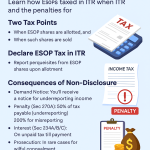Introduction
Market corrections are a test of discipline and strategy. Indian investors—both new and seasoned—can fall prey to certain classic mistakes when volatility strikes. Understanding these errors, illustrated with relevant examples from the Indian markets, can make all the difference between panic and profit.
1. Panic Selling in a Downturn
Mistake: Dumping mutual funds or stocks during sharp declines, locking in losses.
Example: In March 2020, during India’s COVID-19 lockdown, the Nifty 50 fell over 35% from its peak. Many retail investors sold out of stalwarts like HDFC Bank and Reliance Industries at lows. Those who exited missed one of the fastest-ever recoveries, with both stocks hitting new highs by the year’s end.
How to Avoid: Re-examine your investment horizon and goals. Corrections are often short lived—historical data on the Sensex and Nifty shows markets recover with time. Don’t act on fear; act on facts.
2. Trying to Time the Market
Mistake: Attempting to sell and buy back at the “perfect” time.
Example: During the July 2025 sell-off, some investors sold their entire small-cap holdings, expecting further falls. When markets rebounded suddenly after positive global cues, they missed significant upswings. In the past, missing a few of the best recovery days on the Nifty has eroded long-term returns substantially.
How to Avoid: Stick to Systematic Investment Plans (SIPs) in mutual funds, which average out purchase prices. Focus on investment duration, not short-term market movements.
3. Ignoring Asset Allocation
Mistake: Keeping all your wealth in equities, real estate, or gold, without diversification.
Example: Many investors who had 90–100% exposure to mid-cap stocks during the 2018 correction saw their portfolios halve, while a diversified portfolio (including PPF, debt funds, or gold ETFs) had much gentler drawdowns.
How to Avoid: Regularly review and rebalance your asset allocation based on your risk appetite and financial goals. Use tools provided by AMFI or your financial advisor.
4. Chasing the “Next Big Thing” During Volatility
Mistake: Jumping into hyped-up sectors or stocks after steep falls.
Example: The post-pandemic IPO rush (2021–22) lured many into newly listed stocks like Paytm and Zomato. Some investors, enticed by early hype, bought heavily after sharp corrections, only to see further declines as fundamentals didn’t support the valuations.
How to Avoid: Prioritise stocks or funds with robust business models and strong balance sheets. Don’t let FOMO override research.
5. Ignoring Emergency Funds
Mistake: Failing to keep enough liquid funds for unforeseen needs, leading to forced selling.
Example: During the job losses of the 2020–21 lockdowns, investors without an emergency fund had to sell equity holdings at rock-bottom prices to meet expenses.
How to Avoid: Build an emergency fund covering at least 6 months’ expenses in a fixed deposit, liquid mutual fund, or savings account—before investing aggressively.
6. Neglecting Tax Implications
Mistake: Selling stocks during a correction without considering tax on capital gains or opportunities for tax-loss harvesting.
Example: Some investors who sold shares in March 2020 booked short-term capital gains and paid taxes, missing out on a potential offset by booking losses in other stocks.
How to Avoid: Plan exits with tax-efficiency in mind. Use tax-loss harvesting, or time sales for long-term capital gains benefits when possible.
7. Overreacting to News and Rumors
Mistake: Acting on sensational headlines or social media rumors about the economy or specific companies.
Example: During the July 25, 2025 market crash, viral WhatsApp forwards about “bank failures” caused panic selling in quality bank stocks like ICICI and Axis, which later proved unfounded. Investors who sold missed quick bounces after these rumors were dispelled.
How to Avoid: Trust only reliable sources (SEBI, RBI, reputed newspapers). Review your investments with your long-term plan, not daily headlines.
Key Takeaway
Corrections and crashes are part of the Indian market’s rhythm. Avoiding these common mistakes—and learning from others’ missteps—will help you emerge stronger. Discipline, diversification, and a focus on long-term strategy are your best defences against volatility.
Stay informed. Stay calm. Every correction offers a new chance for growth to patient, prudent investors.
Open Demat account using:



